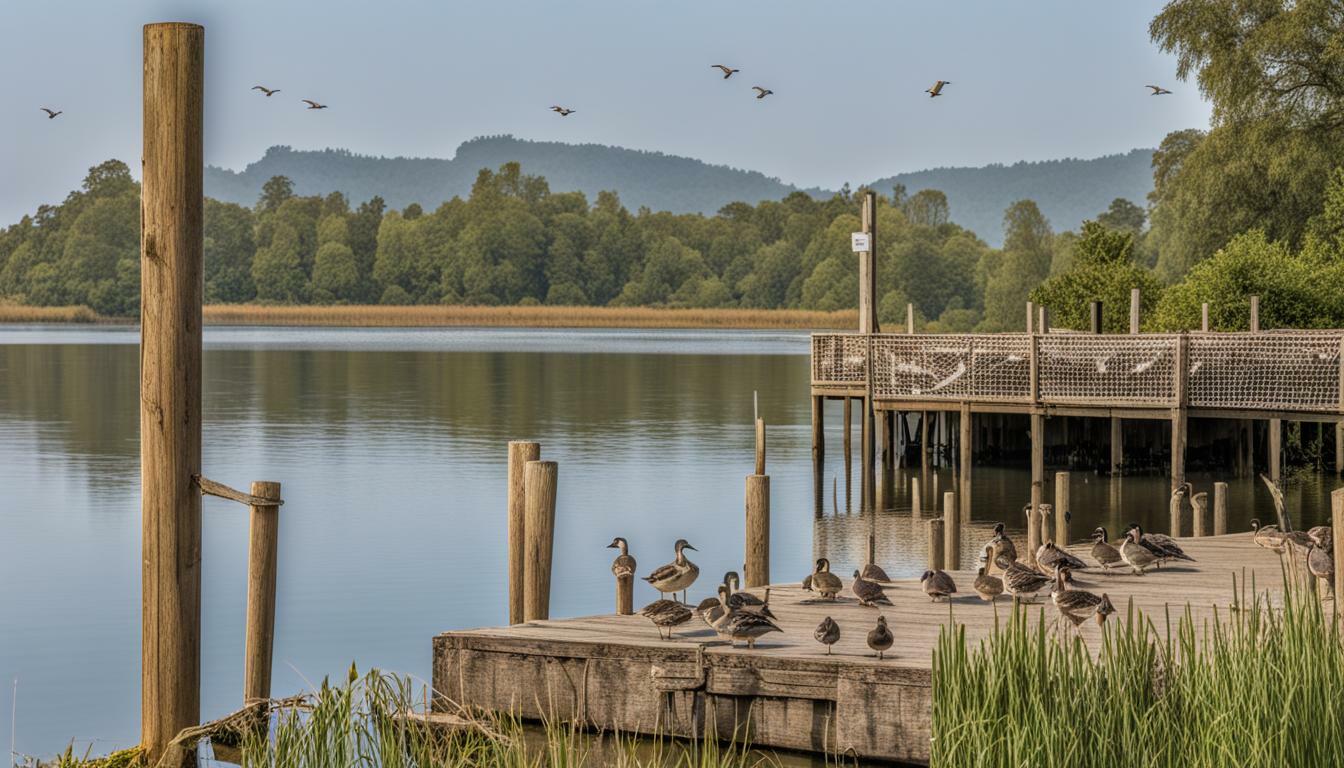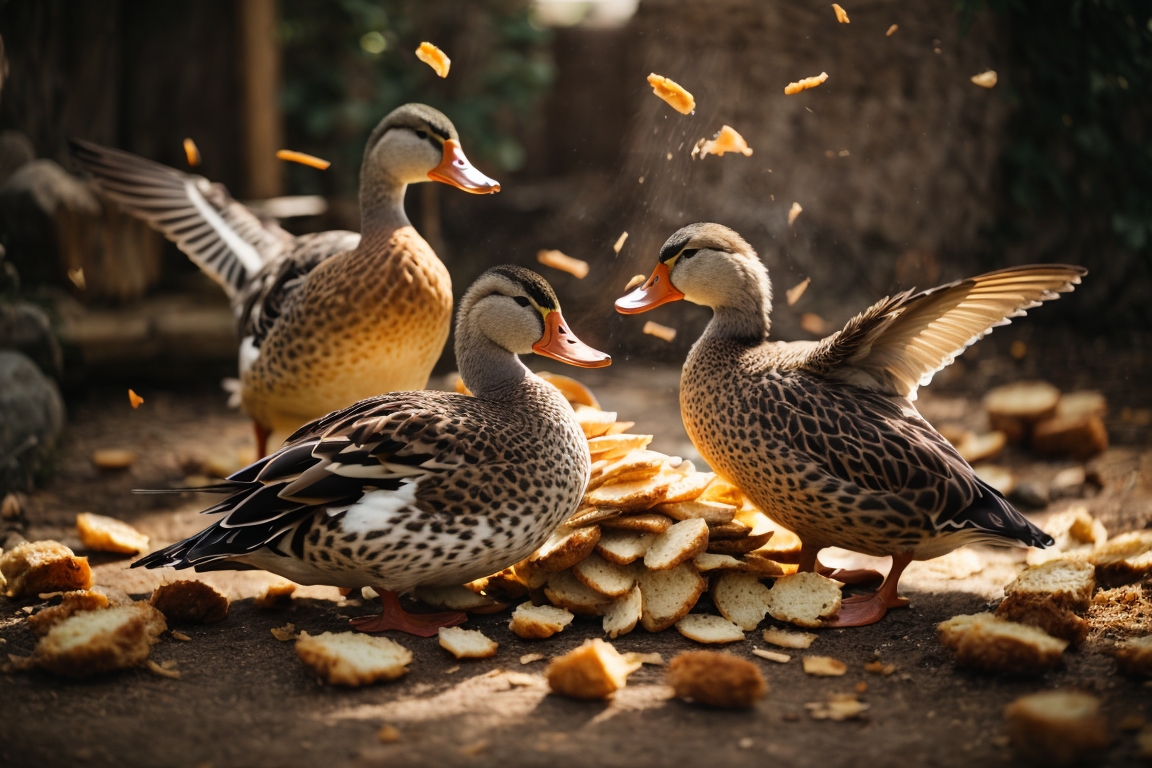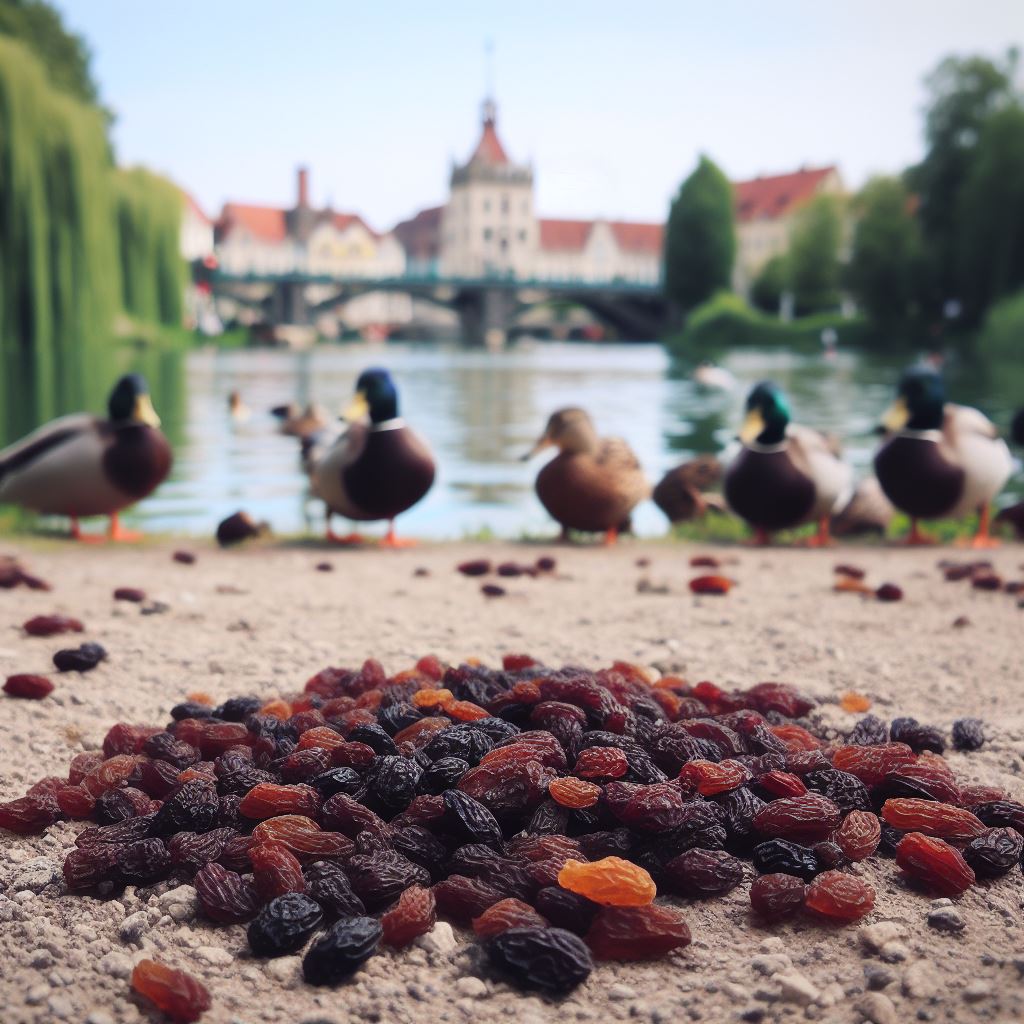How Do Ducks Die Naturally? Understanding the Natural Lifespan

Table of content:
- How Long Do Ducks Normally Live?
- What is the Average Lifespan of a Duck in the Wild?
- What Causes of Death are Most Common for Ducks in Nature?
- At What Age Do Wild Ducks Typically Die?
- What Percentage of Ducks Die from Natural Causes vs Predators?
- Do Most Ducks Die from Disease or From Predators?
- How Do Ducks Die if They’re Not Killed by Predators or Humans?
- What are the Most Common Natural Causes of Death for Ducks?
- How Long Can Ducks Live Without Human Interference?
- At What Point in a Duck’s Life Does its Risk of Dying Naturally Increase?
- Final Thoughts
Ducks are a common sight in parks, ponds, and wetlands across North America. But how long do our web-footed friends live in the wild? And what ultimately leads to their demise if they manage to avoid predators and disease? Here we’ll explore the natural lifespan of ducks and the most common causes of death they face in their natural environments.
How Long Do Ducks Normally Live?
On average, most duck species can live between 5-10 years in the wild. However, their lifespan can vary widely based on habitat, diet, predation levels, and other factors.
Larger duck species, like mallards, often exceed 10 years in ideal conditions. The oldest known mallard lived to be almost 30 years old! Smaller ducks, like teals, may only live to 5 or 6 years on average.
Ducks raised in captivity with plenty of food, shelter, and veterinary care can live even longer. It’s not unheard of for pet ducks to reach 15-20 years old. But in the wild, they face more threats and hardships that cut their lives short.
What is the Average Lifespan of a Duck in the Wild?
According to bird experts, most wild ducks live an average of 5-8 years. Larger species like mallards and black ducks sit at the higher end of that range, while smaller ducks like green-winged teals live shorter lives.
Factors like habitat quality, predation, hunting pressure, disease, and weather/environmental conditions all influence longevity. Ducks in protected wetlands with plentiful resources and mild climates tend to live longer.
Harsher northern climates present more challenges. But ducks have adapted to survive cold winters and short summers by migrating and putting on insulating fat. Overall, most ducks in the wild can expect to live for 5-8 years if they avoid predators and illness.
What Causes of Death are Most Common for Ducks in Nature?
Ducks face a variety of lethal threats in the wild that claim their lives well before old age. The most common natural causes of death include:
Predation – Foxes, coyotes, bobcats, snakes, large birds, and other predators all feed on ducks. Ducklings under 3 weeks old are especially vulnerable. Avoiding predators requires constant vigilance.
Starvation – In cold winters with frozen waterways, starving is a risk if food becomes scarce. Migration helps ducks follow ideal food sources seasonally.
Disease – Parasites, fungal infections, avian influenza, and other contagious illnesses can spread rapidly and cause many ducks. Botulism outbreaks from bacteria in ponds also kill ducks.
Severe Weather – Bitter cold, storms, flooding, droughts, and heat waves can all take their toll on duck populations. Getting caught migrating during storms or having wetlands freeze over or dry up can be lethal.
Hunting – Legal hunting removes many adult ducks from the population annually. Hunting pressures can shorten lifespan by removing ducks in their prime.
Surviving the gauntlet of lethal threats in the wild allows some ducks to perish from simple old age. But most will meet their demise from one of the common causes above within their first 5-8 years.
At What Age Do Wild Ducks Typically Die?
Because predators pose the most constant danger, many ducks die within their first year. Over 50% of some duckling populations may perish soon after hatching.
Ducklings and juveniles under 1 year old account for the majority of duck deaths annually. Their small size, naivety, and underdeveloped flying ability leave them highly vulnerable.
If a duck survives to adulthood, they may live to 5-8 years on average. But predators continue to claim adult ducks each year as well.
The oldest wild ducks documented have lived 15-20 years, but ducks older than 10 are rare. Most wild adult ducks likely succumb between 5-8 years to some combination of starvation, disease, severe weather, hunting, and predation.
So while ducks may have long potential lifespans under ideal conditions, the reality of surviving threats in nature means most have much shorter lives.
What Percentage of Ducks Die from Natural Causes vs Predators?
It’s difficult to provide exact percentages since many duck corpses are never found or accounted for. That said, studies estimate predation is responsible for 50-70% of duck deaths annually.
Natural causes like disease, starvation, and weather likely claim no more than 10-30% of the overall population per year. The exceptions are during major disease outbreaks or abnormal weather like severe winters or prolonged drought.
Hunters also take a significant percentage – estimates range from 15-25% of the total population harvested legally each year. Some hunted populations like mallards and black ducks rebound well, while smaller duck species are more impacted.
The remaining deaths occur from flying into structures, oil spills, fish hooks, lead poisoning from shot pellets, and other unnatural causes. But predation remains the primary threat facing ducks in nature overall.
Do Most Ducks Die from Disease or From Predators?
Research shows healthy wild duck populations suffer far more losses annually to predators than disease. Bobcats, foxes, mink, snakes, crows, ravens, gulls, and other predators consume millions of eggs and ducklings each breeding season.
Major disease outbreaks can impact localized duck populations dramatically but are uncommon most years. Diseases like avian botulism and avian cholera outbreaks may kill thousands of ducks regionally but don’t usually devastate entire flyways.
Parasites and fungal infections claim some ducks but are secondary threats most years. Meanwhile, healthy adult ducks continue to be preyed upon.
So in a normal year, predation will outpace disease significantly in overall duck deaths. However, a severe flu outbreak or bad breeding season could periodically shift that balance.
How Do Ducks Die if They’re Not Killed by Predators or Humans?
In the minority of cases where ducks escape their primary threats from predators and hunters, they eventually succumb to illness, starvation, weather, or age.
Illness – Bacterial and fungal infections are common natural causes of death. Severe cases of aspergillosis fungus in lungs is often fatal. Salmonella and E. coli outbreaks can also debilitate and kill ducks.
Starvation – Dabbling ducks especially may starve during harsh winters if wetlands freeze over, denying them food access. Mass starvation events are rarer but still occur.
Weather – Getting caught migrating during storms or facing extreme heat, cold, flooding or drought can leave ducks exhausted and ultimately dead. Severe winters also starve and freeze ducks.
Age – If a duck survives other threats long enough, it will eventually die of old age and organ failure, or from injuries like broken wings that gradually debilitate it.
But most ducks don’t reach old age in the wild. Staying alert, migrating successfully, avoiding illness and predators, and finding food in challenging environments make ducks highly vulnerable overall. Any small lapse in their defenses can quickly become fatal.
What are the Most Common Natural Causes of Death for Ducks?
The most prevalent natural causes of death for wild ducks include:
- Predation – Foxes, coyotes, raccoons, snakes, rats, large birds, and other predators kill adult ducks and consume eggs/ducklings. Bobcats and mink target ducklings aggressively.
- Starvation – Especially common for ducklings and during migration or harsh winters if waterways freeze over or food becomes scarce.
- Disease – Avian botulism, avian cholera, salmonella, and aspergillosis most commonly impact duck health and can result in death.
- Parasites – Worms and leeches can weaken ducks over time and lead to death if unchecked.
- Severe Weather – Storms, heat waves, bitter cold, flooding, and drought can all be directly or indirectly lethal if ducks can’t find shelter and food. Migrating into storms is especially dangerous.
- Age – After surviving other threats, ducks ultimately succumb to organ failure or related complications of advanced age.
Understanding the common pitfalls ducks face in nature allows us to support their habitats and health through conservation. Minimizing pollution and hunting pressures can help more ducks die peaceful deaths of old age.
How Long Can Ducks Live Without Human Interference?
Without human intervention like habitat loss and hunting pressures, ducks could potentially live their maximum lifespans of 15-20 years in ideal conditions. However, predators would still claim many each year.
Ducks evolved to lose up to half of each year’s offspring to predation. And foxes, coyotes, bobcats, and other predators would continue to prey on adults in the absence of human interference.
Disease outbreaks would also naturally thin duck populations periodically. And weather events would take their toll. Ducks may rely more on migration without supplemental feeding from people during winter as well.
Overall, while ducks could potentially enjoy somewhat longer average lifespans and higher numbers without human impacts, their existence would remain a struggle for survival against various threats in the wild that cap most lives at under 10 years.
At What Point in a Duck’s Life Does its Risk of Dying Naturally Increase?
Ducks face the highest risk of dying within their first year, especially in the first few weeks after hatching. More than 50% of ducklings may die soon after hatching from predation, exposure, or starvation.
The first migration also claims many young ducks unaccustomed to the long journey. Year one remains the most deadly period in the duck life cycle.
If a duck survives to adulthood, risks remain elevated for the elderly at 10+ years old. Older ducks may struggle to effectively migrate, mate, avoid predators, and fight diseases.
In between as adult ducks of breeding age, risks are lower than for the youngest and oldest. Dangers still exist from predators, hunters, and illness. But healthy adults in their prime with experience have the best annual survival odds in nature until their age years.
Final Thoughts
In an ideal world, ducks could live 15 years or more. But the many threats of the wild cap average lifespan between just 5-8 years for most ducks. Avoiding the persistent danger of predators is essential to their survival. Providing clean wetland habitats rich in plants for food and cover remains key to aiding duck longevity as well. Understanding how ducks die provides insights to help us protect these popular waterfowl that bring joy to so many. With conservation measures, we can endeavor to give more ducks the chance to live full, natural lives.
Welcome. I’m Adreena Shanum, the proud owner of this website, and I am incredibly passionate about animals, especially poultry. I founded adreenapets.com as a labor of love, stemming from my desire to share my knowledge and experiences with poultry enthusiasts worldwide.




